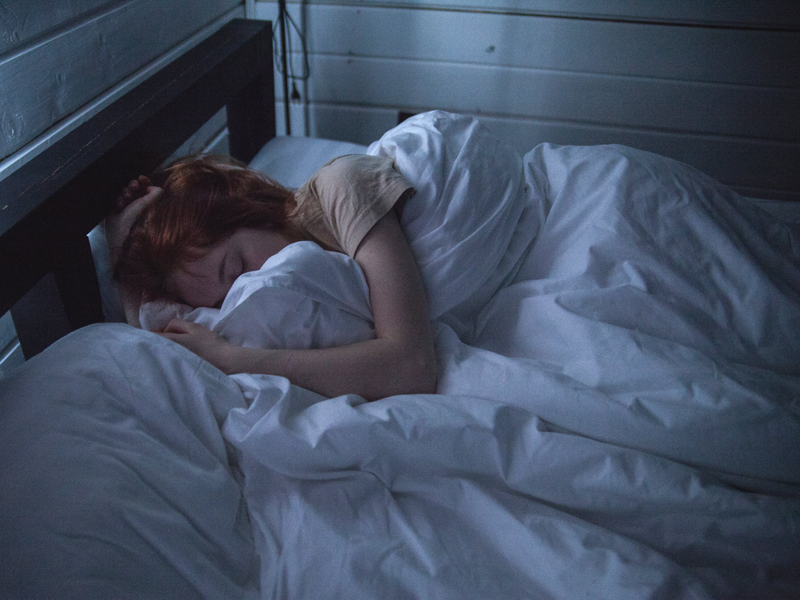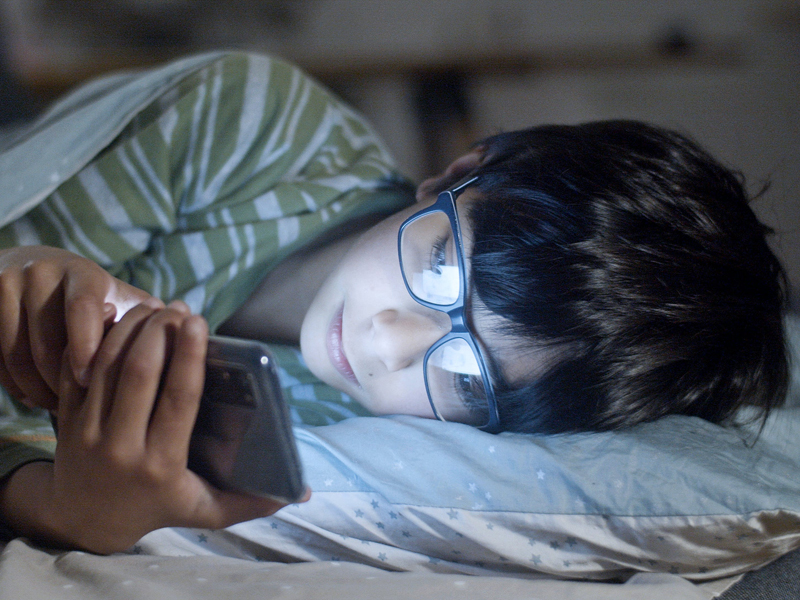School mode: on. Or is it? If your teen’s routine is all out of whack they need a body clock reset. Prepare for a rough ride.
The end of school holidays often is a strange mix of celebration (that’s us!), sadness (the teens) and madness (life generally). It’s a rare teen who enthusiastically gives up lazy holidaze for the relentlessness of the school routine.
I mean, I’m sure there are a few out there, but I’ve never met one. All three of my kids dragged themselves into a new school year like they’re heading for the gallows. I can’t say I blamed them, but I always hoped they wouldn’t look over their dejected shoulders to see their mother doing a little happy dance. By the time February rolls around, I am well and truly over the family bonding.
A couple of weeks out from school, I find the trickiest thing helping my teens reset their body clock. It’s been weeks of late-night Netflix binges, parties and group chats. Followed by mornings of… well, nothing actually as they all sleep the mornings away and make an appearance around 11 or even later. “Good evening,” I greet them as they stagger out of bed.
Whether it’s the right thing to let teens become nocturnal during the holidays or not, all I know is that getting them into school mode is a daunting task. I’ve only got one left in school now (Lottie is going into year 11!), but she’s my most school-reluctant of all. She’s also my very best sleeper-inner!
Here’s how we attempt to reset the teen body clock at my place.

Understand the teenage body clock
Before diving into strategies, it’s crucial to understand the science behind the teen body clock. Adolescents experience a shift in their circadian rhythm during puberty. This means they have a natural tendency to stay awake later at night and sleep in longer in the morning. This biological shift, coupled with the freedom of the holidays, often results in irregular sleep patterns.
So, the first step to resetting a teen’s body clock is to acknowledge that their clock is naturally one that wants to stay up until later at night. Sending them to bed at 8.30 pm and expecting them to fall asleep is probably not going to work.
Get your teen on board
Depending on how old your teenager is, you’ll likely not have a great deal of influence on when they go to bed or even what happens after. Which is why you first need to get their buy-in on why this reset is a good idea. My starting points for this conversation are:
- Your first week back at school will be utter hell if you don’t make some changes now
- What are some fun things we could do in the mornings that are worth getting out of bed for?
Make it a gradual transition
If school starts in a couple of weeks, start the reset now. Abrupt changes to sleep patterns can be counterproductive and lead to resistance from your teen. Instead, we opt for a gradual transition back into school mode.
Start by helping them adjust bedtime and wake-up times by 15 to 30 minutes each day in the week leading up to the first day of school. This gentle approach allows your teen’s body to naturally acclimate to the upcoming schedule.
Go back to a bedtime routine
Re-introduce a calming bedtime routine to signal to your teen that it’s time to wind down. Yep, we are back to the toddler days!
The new bedtime routine could include gentle activities like reading, listening to soft music, practising mindfulness techniques (Smiling Mind is great for this) or working on a quiet project.
Try to get them to minimise the use of devices at least an hour before bedtime. The blue light emitted by screens interferes with production of melatonin, making it harder to fall asleep. Which brings me to screentime in general…

Balance screen time
The holidays at our place come with increased screen time, whether it’s gaming, binge-watching Yellowjackets, or fixing on TikTok.
As school approaches, we try to gradually reduce time on screens in the evenings. I’ll admit, this is not always successful. I don’t know when it happened, but sometime a few years ago I completely lost the screen time war with my kids and now it’s pretty-much a free-for-all. That said, they are pretty good at imposing their own boundaries, so “reducing screen time” for me is about having “the chat” with them about taking care of their emotional and physical health by not having screens in their bedroom at night. This works some of the time, not all.
If you’ve still got control (and I bow to you), then switching off their access to wifi or even locking up the phones at night is always a good idea.
Encourage exercise and outdoor time
Physical activity plays a pivotal role in regulating sleep patterns. Essentially, the more movement your teen gets in their day, the more likely they are to sleep soundly and well. Bonus: exercise not only promotes better sleep but also helps lower stress and anxiety.
Encourage your teenager to do regular exercise during the day, preferably in the late afternoon or early evening. Make it easy for them by scheduling activities like beach time, bushwalks, bike rides or gym. Suggest they get together with their friends in an active way, rather than just hanging out at the shops or going for Maccas. Activities like going to the local pool or waterslides, having a day at the beach, playing soccer in the park or just walking to the shops to get the Maccas are good options.
They’ll either think that’s a great idea, or look at you like you have two heads. Either way, you have done your parenting job by suggesting it in the first place.

Check their sleep hygiene
‘Sleep hygiene’ is a shorthand way of saying “how conducive to sleep is your kid’s lifestyle?” For most teens, the answer is probably “not very!”
Good sleep hygiene means a bedroom that invites restful sleep, not rowdy gaming. Keep it cool, dark, and quiet and invest in a comfortable mattress and pillows.
The bedroom is important, but good sleep hygiene also means a keeping a consistent sleep schedule (yep, even on weekends and holidays), low caffeine intake, plenty of movement and a good, nutritious diet. Basically, all the things that make for an overall healthy lifestyle.
You can find out more here: How to help teens take care of their health
Ease the emotional shift
Moving from holiday mode to school mode is not just about a reset of the body clock; it’s also an emotional shift. The complex emotions a teen will experience when thinking about returning to school can have a massive impact on their sleep and overall wellbeing.

To help them make the emotional shift, engage in open and honest conversations about the upcoming changes. Discuss any concerns or anxieties they may have about returning to school and emphasise the positive aspects. These might be spending more time with friends, working on projects they like and, ironically, getting back into ‘real life’.
Request backup if you need it
If a body clock reset proves especially difficult, don’t hesitate to call in the professionals. That might be your GP, psychologist or natural practitioner. If your kid’s circadian rhythm is truly toast, talk to your GP about seeing a sleep specialist. Having their sleep out of whack with the school day will ultimately affect every aspect of your teen’s life, so do take it seriously.
Feature image Freepik; redhead by Ivan Oboleninov; screen in bed by Kampus Production; friends walking by Ron Lach; mother and son Photo by Kindel Media

